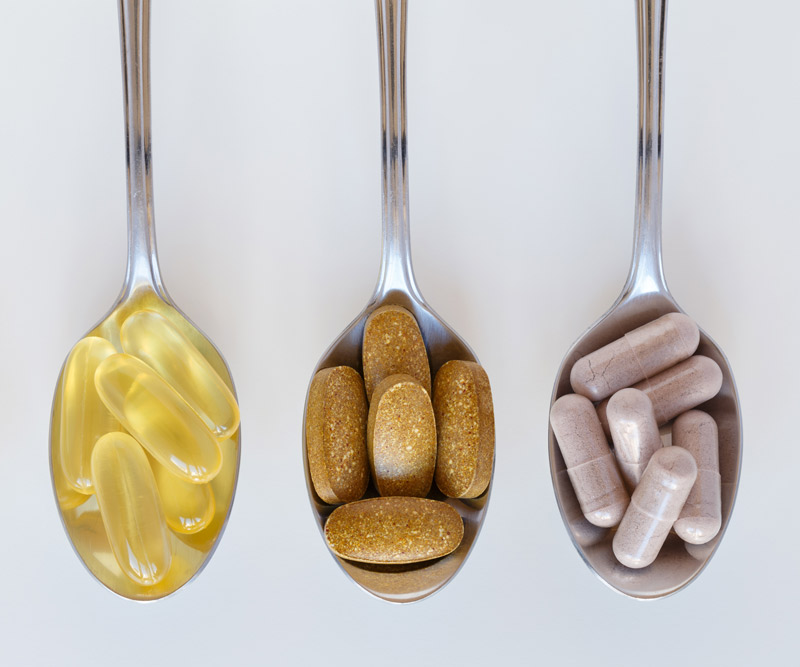
All over the news lately, it seems everyone is talking about ketogenic diets to lose weight.
With any new diet trend, we want to know – is going “keto” good or bad?
Is it dangerous?
Should you try this diet on your own?
But first – what is a ketogenic diet, exactly?
A ketogenic diet is low in sugars and starches, also known as carbohydrates.
A keto diet also contains adequate – not high – amounts of proteins, plus natural fats.
How the Diet Works
When you decrease your carbohydrate consumption for several days, your body will turn to burning its own fat for energy.
The burned fat generates what are known as ketone bodies.
The ketones suppress appetite and act as a preferred fuel source for the heart and brain.
On this diet, a person enters a state of "ketosis,” a state that humans probably existed in for millions of years prior to the advent of supermarkets and processed foods.
Still, there remains some confusion about keto and low-carb diets, what you can eat on these diets, and if they are healthy.
Let’s separate fact from fiction.
MYTH 1: Ketosis is dangerous.
FACT: Ketosis simply refers to the state of metabolism where the body uses fat as its primary energy source.
In fact, since we don’t eat after we go to bed at night, we temporarily live off our fat reserves for eight-plus hours and do a little ketosis while we sleep!
Many people (health professionals included) confuse ketosis – a natural state of the body – with ketoacidosis.
Ketoacidosis, which refers to the buildup of acid plus ketones, can be a dangerous condition that has different causes unrelated to diet.
While well-formulated low-carb and keto diets are safe, symptoms are possible if not done correctly.
People who report “keto flu” symptoms (headaches, lightheadedness, nausea, weakness, unusual fatigue) often are not drinking enough water and getting enough salt, so proper instruction on these diets is critical to ensure you are getting adequate nutrition and hydration.
In some cases, electrolyte supplements may be needed.
If you take medications, it’s also important to be medically monitored by a physician with expertise in these diets. Your meds can quickly become too strong for you, and dose reductions may be needed – but overall this is a great thing, especially if your goal is to get off medications by improving your health!
MYTH 2: Low-carb, high-fat diets cause heart disease.
FACT: Foods high in sugar and starch are what cause abnormal production of harmful cholesterol particles, leading to heart disease.
These foods also lead to inflammation, which is actually the major inciting event for heart disease, not the intake of natural fats.
In fact, most fat that we eat is not even absorbed by our bodies.
MYTH 3: Low-carb, high-fat diets can harm the kidneys or liver.
FACT: Decades of research shows no kidney damage in patients who follow a low-carb, high-fat, moderate-protein diet, even in people with diabetes.
Research also is quite clear that this diet can reverse fatty liver disease, which is common in those who carry excess weight.
MYTH 4: The body requires sugar and carbs to have energy.
FACT: When you eat less sugar and carbs, the body will instead turn to burning fat for energy, leading to much higher energy levels overall!
This is why ultramarathoners rely on ketosis for their 100-plus-mile runs – it would be impossible for them to eat enough carbs to sustain themselves otherwise.
MYTH 5: You have to eat a lot of meat to do a keto/low carb diet.
FACT: Low-carb diets are totally OK if you wish to be a vegetarian or eat mostly fish as your protein source! In fact, many fish contain high levels of omega-3 fatty acids, which is the healthiest type of fat for your body to consume.
MYTH 6: You can’t follow a low-carb diet for the rest of your life.
FACT: You can actually eat a wide variety of foods on a low-carb eating plan.
Higher amounts of fat in the diet make foods tasty and more satisfying so you feel less hungry overall.
See below for a sample low-carb, keto-friendly breakfast, lunch and dinner menu – some of our favorite recipes from the Hawaii Pacific Health 360˚ Weight Management Program!
|
Sample Breakfast
|
Sample Lunch
|
|
Sample Dinner
|
Sample Dessert (Yes, you can still have dessert!)
|
Published on: November 1, 2018








